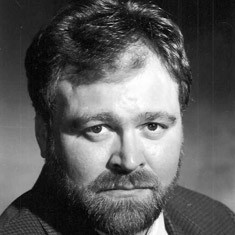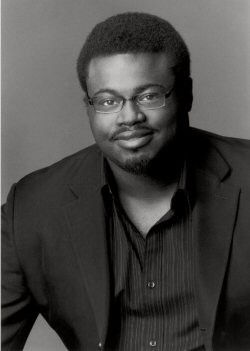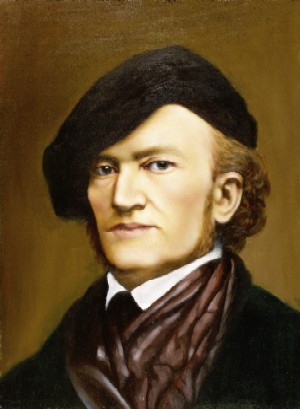Flying Dutchman at Metropolitan Opera
Lori Phillips Makes a Remarkable Debut as Senta
By: Susan Hall - May 04, 2010
Der Fliegende Hollander
Richard Wagner
Conductor Kazushi Ono
Production August Everding
Daland, Hans-Peter Konig
The Steersman, Russell Thomas
The Dutchman, Juha Uusitalo
Senta, Lori Philllips
Mary, Wendy White
Erik, Stephen Gould
The Metropolitan Opera
Performances on May 6, 10, 14 with various casts.
212-362-6000
Hearing The Flying Dutchman unfold on stage at the Metropolitan Opera, the music was simply gorgeous. With Wagnerian singers, we often forget that the music is beautiful, because the production effort is so great that the musical line is lost. Different choices are made by some sopranos. For instance Hildegarde Behrens created a memorable Senta with a searing edge.
Giving great pleasure, soprano Lori Phillips made her Metropolitan Opera debut as Senta. She sang with dramatic feeling and also an edge. We might wish for more color and nuance, but Phillips delivered an unusual sense of the beauty of Wagner’s music. We should see more of her at the Met.
The Met chooses to present the opera’s three acts continuously. Clearly Wagner intended us to be swept by the continuity. He wrote to Ferdinand Heine, “…I allowed the whole aura of the legend to spread unchecked over the entire piece, since only in that way did I believe I could hold the listener’s attention, inducing in him a strange frame of mind which alone would persuade even the least poetical listener to conceive an affection…for the most somber of legends.” The Flying Dutchman is Wagner’s first mature piece.
Wagner noted that he had feared the reaction in Berlin, but realized as the performance went on that he had won them over, weaving a spell around the audience. In portions of the Met’s production, we get swept in very much the same way.
Wagner thought the house was going to collapse when he took a bow. On stage, he was joined by Felix Mendelssohn, who he reported was “well-disposed” to him.
This Met production is particularly satisfying. You sense water, water, water. Many composers traveled a good deal, but Wagner brought the color and texture of his journeys into his composition. He had written of a journey that passed near Norway, “I will never forget this sea journey: it lasted three and a half weeks and was filled with accidents. Three times we suffered from the most violent storms, and once the captain was constrained to sail into a Norwegian harbor. The journey through the Norwegian fjords made a marvelous impression on my imagination; the legend of the Flying Dutchman, confirmed by oral reports of the sailors, attained for me a particular and characteristic color, which only the adventure I had experienced at sea could give it.”
The set created by Hans Schavernoch has huge fjords, blocks of ice and ships from the ground’s eye point of view, looming over the stage and townspeople as chorus. Snow falls. We see the prow of one ship move past the windows of Daland’s home just before the Dutchman enters.
Hans-Peter Konig, who specializes in the great Wagner bass roles, was a wonderful Daland, a consummate actor with a clear, lyric voice. He is also a fun actor to watch. Everyone agreed that a curlicue he performed with his finger as he successfully reached for a C was amusingly done to help him get there.
Perhaps because he had a cold, Uusitalo as the Dutchman had a difficult outing. A part of his second act duet with Senta showed what he could do when he was comfortable, mezza voce. Stephen Gould making his Met debut in the role of Erik has a large voice.
Note the steersman, Russell Thomas, a graduate of the Lindemann Young Artist development program, heard earlier this year in Attila. Although he falls asleep (librettist’s direction) during his act one aria “Mit Gewitter und Sturm”, he displayed a perfectly beautiful Wagnerian tenor and a wonderful comic touch as an actor (think of other comic Wagnerian moments for him to perform). The world is taking notice. In Barcelona he won a prize for both audience favorite and best tenor. In Dresden, he also won first prize in the Competizione dell’Opera
Wagner identified with the Dutchman. He wrote to Franz Lizst, who was about to conduct the opera for the first time in Weimar, that he heard in his head a tune which accompanied the words: “ A spectral man, who can tell you where you will find her. One chance remains to gain this poor man his peace and salvation.” Oh how happy he would be to die in a storm at sea…but also in the flames of Valhalla, Wagner tells Liszt, who surely would understand those sentiments.
The conductor Kazushi Ono’s excruciatingly slow take on tempi denied Wagner’s forward thrust and must have been difficult for the singers. The chorus and orchestra unfortunately detached in Act III.
At around the time he wrote The Flying Dutchman Wagner was friendly with the Russian revolutionary, Mikhail Bakunin. In fact, Bakunin played a leading role in the May Uprising in Dresden in 1849 along with Wagner. They helped to organize the defense of the barricades against Prussian troops.
Of The Flying Dutchman Bakunin said, “That was on water. What must this music become when one day it deals with fire!” Fortunately we will see as we move on to new production of The Ring.




